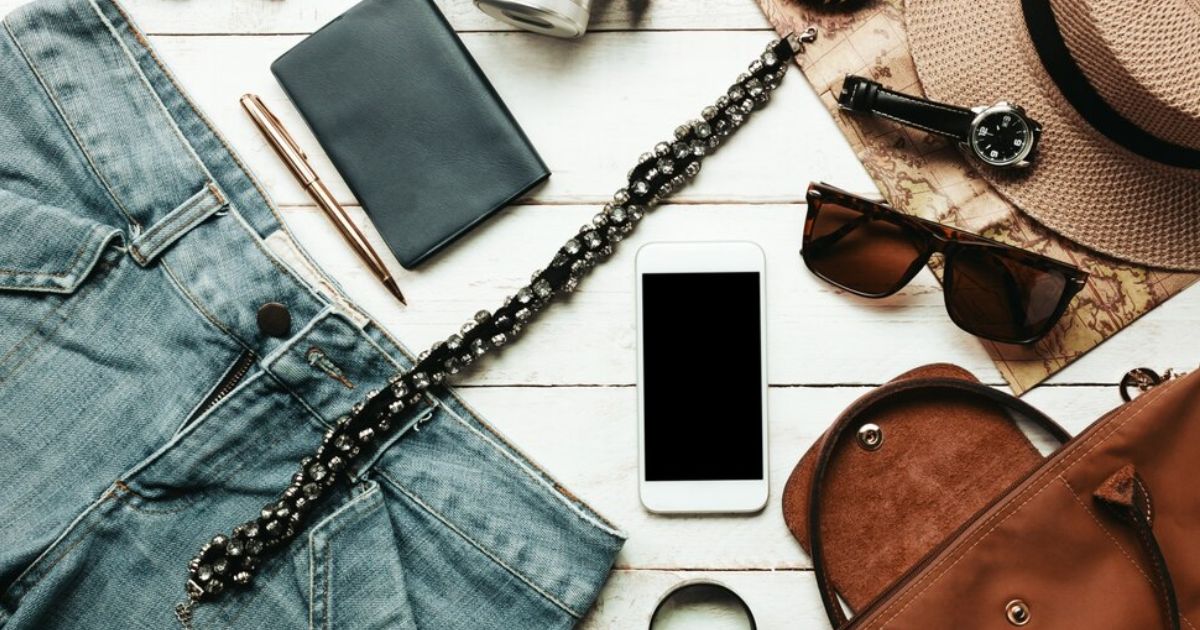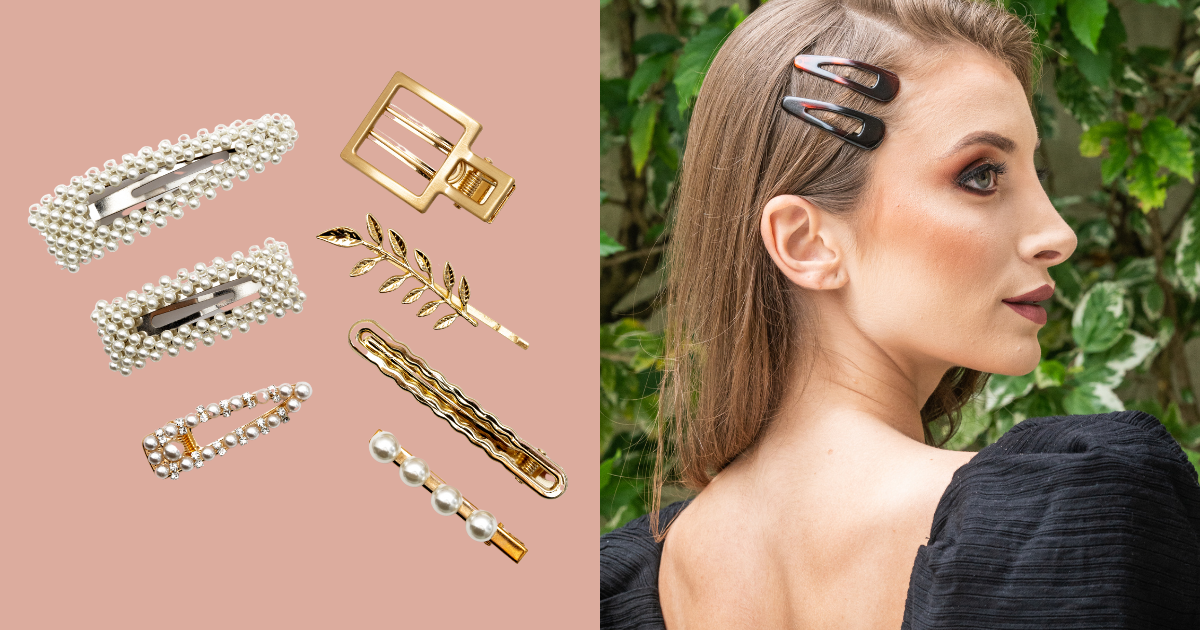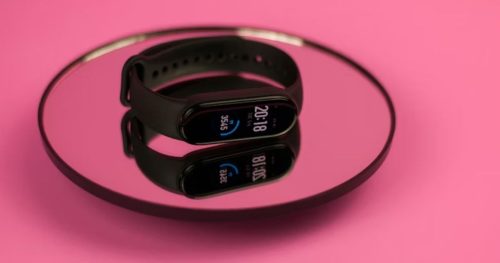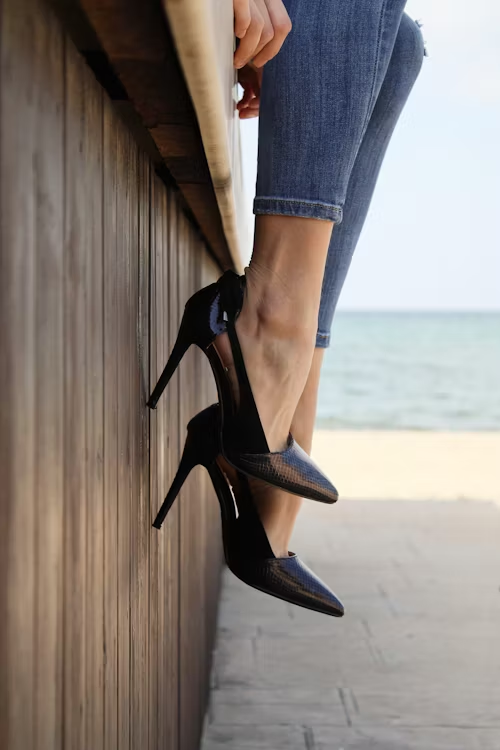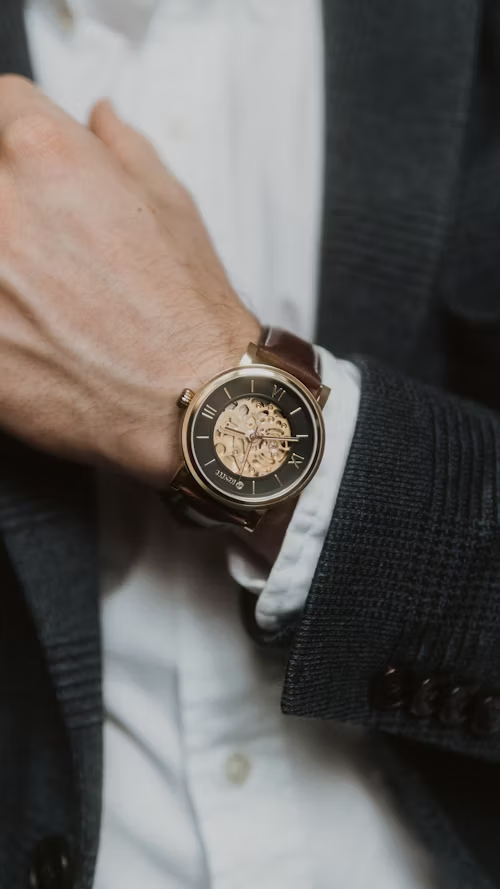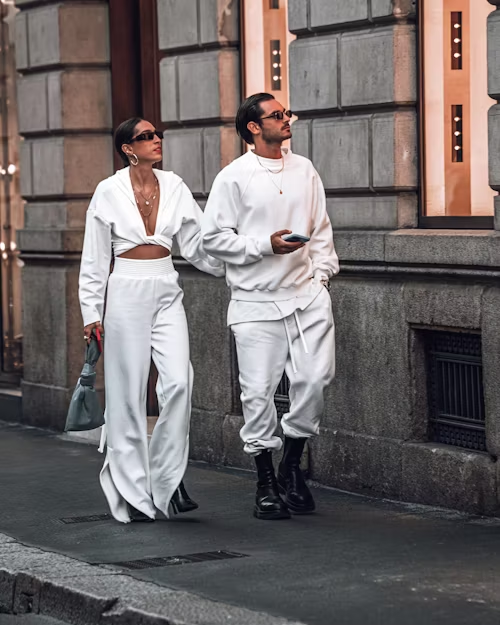Style is about trends, values, accountability, and impact. “Eco-chic” defines this new fashion era, blending elegance with ethics. As the industry confronts its environmental and social footprint, accessories lead with innovative materials and planet-friendly practices—from biodegradable phone cases to fruit-leather handbags.
Driven by Millennials and Gen Z, who demand transparency and sustainability, conscious consumerism is reshaping the market. Sustainable accessories have seen a 32% annual growth, reflecting the rising demand for stylish and responsible fashion.
This guide highlights the top sustainable accessories brands that redefine luxury through circular design, ethical sourcing, and eco-innovation.
The Criteria for “Sustainable” Accessories
Sustainability in fashion is more than a buzzword—it’s a comprehensive approach that considers a product’s entire lifecycle. This means careful attention to materials, ethical labor practices, waste reduction, and carbon output for accessories. A sustainable accessory isn’t just beautifully made—it’s thoughtfully produced with minimal harm to people and the planet.
Key Elements of Sustainability in Accessories
Creating truly sustainable accessories means addressing every stage of a product’s lifecycle—from material sourcing to end-of-life solutions. Here are the essential pillars defining sustainability in the accessories space:
- Materials: Sustainable accessories start with responsible materials. Brands increasingly turn to recycled metals for jewelry, reducing the need for environmentally destructive mining. Plant-based leathers like Piñatex (from pineapple leaves), apple leather (from apple waste), and cactus leather offer biodegradable, cruelty-free alternatives to traditional leather. Bio-acetate, used in eyewear, is derived from renewable cellulose instead of petroleum-based plastics. Additionally, regenerative natural fibers such as organic cotton and hemp are favored for their lower water use and ability to improve soil health.
- Ethical Production: Sustainability extends beyond materials and encompasses people’s fair and respectful treatment throughout the supply chain. Ethical manufacturing prioritizes living wages, safe workplaces, and the protection of labor rights. Increasingly, brands are partnering with artisan communities, especially in the Global South, to provide meaningful employment, safeguard cultural craftsmanship, and support economic empowerment at the grassroots level.
- Carbon Footprint: Sustainable brands are actively working to reduce their carbon emissions to combat climate change. This includes using renewable energy in manufacturing, investing in carbon offset programs, and offering full emissions transparency through lifecycle assessments. Some companies even label their products with exact carbon footprints, helping consumers make more informed choices.
- Circularity: Sustainable accessories embrace a circular design philosophy, rejecting the traditional “take-make-dispose” model. They prioritize longevity through repairable construction, repurposed materials, eco-friendly packaging that can be composted or recycled, and initiatives like product return or reuse programs. The emphasis is on extending a product’s life cycle, reducing waste, and extracting the most value from existing resources.
Certifications to Watch
Regarding sustainable accessories, certifications are crucial in helping consumers identify brands that align with their ethical and environmental values. These third-party certifications ensure that a brand meets specific social and environmental standards.
- AB Corp: AB Corp Certification is among the highest indicators of a brand’s commitment to social and environmental responsibility. To earn this certification, companies must meet rigorous performance, accountability, and transparency standards for environmental impact, community engagement, and employee welfare. B Corps are assessed on their entire business model, and their commitment is verified through a thorough audit process. This certification assures consumers that the brand minimizes its environmental footprint and prioritizes ethical labor practices and social responsibility.
- Fair Trade Certified: The Fair Trade Certified label ensures that products have been sourced in a manner that supports ethical labor practices. This certification ensures fair wages, safe working conditions, and sustainable livelihoods for workers, particularly in developing countries. Fair Trade Certified products are made under strict guidelines prohibiting child labor, forced labor, and exploitation. Additionally, the certification often supports community development, with premiums paid directly to communities for social and environmental initiatives, further enhancing the positive impact of purchases.
- GOTS (Global Organic Textile Standard): The Global Organic Textile Standard (GOTS) is the foremost certification for organic textiles, establishing rigorous environmental and social benchmarks. To achieve GOTS certification, products must be made from organic fibers such as cotton, wool, or hemp and undergo processing methods that minimize environmental impact. The accreditation also upholds strict social criteria, ensuring fair labor practices, safe working conditions, and support for sustainable farming. GOTS guarantees that textiles are free from harmful chemicals and crafted using sustainable processes. It is a vital certification for brands producing eco-friendly and health-conscious fabric goods.
- FSC (Forest Stewardship Council): The Forest Stewardship Council (FSC) certification ensures that wood, paper, and other forest-derived products are sourced from sustainably managed forests. It promotes responsible tree harvesting by focusing on biodiversity conservation, respecting Indigenous rights, and minimizing deforestation. For accessories, this certification can apply to items like leather goods, watches, or bags that contain wood or paper elements. FSC certification guarantees that the materials used do not contribute to environmental harm and that the entire supply chain adheres to ethical practices.
These certifications provide meaningful insight into a brand’s sustainability efforts, offering consumers a reliable way to support businesses committed to creating positive social and environmental change. Look for these labels to ensure your accessory purchases align with your values.
Top Sustainable Accessories Brands to Watch
1. Sustainable Jewelry Brands
- Mejuri (Canada): This direct-to-consumer favorite is reimagining fine jewelry with sustainability. Mejuri uses recycled gold and lab-grown diamonds to reduce mining impacts. Their transparent pricing and traceable materials make them a go-to for ethically conscious shoppers seeking timeless elegance.
- SOKO (Kenya): SOKO partners with Kenyan artisans, using mobile technology to streamline ethical manufacturing. Their pieces are crafted from recycled brass and reclaimed horn, showcasing a commitment to local economic development and supply chain transparency.
- Ana Luisa (USA): With carbon-neutral shipping and recycled base metals, Ana Luisa is committed to “jewelry that doesn’t cost the Earth.” Their water-saving processes and dedication to zero waste make them a leader in affordable, ethical jewelry.
2. Handbags & Totes
- Stella McCartney (UK): Stella McCartney, a trailblazer in sustainable luxury, redefines fashion with groundbreaking materials like Mylo™, a mushroom-based leather alternative. Her commitment to animal-free fashion, circular design, and regenerative agriculture places her brand at the forefront of the eco-chic revolution.
- Mashu (Greece): This emerging label redefines eco-luxury by shaping architecturally inspired handbags from Piñatex—an innovative textile made from pineapple leaf fibers—and interiors fashioned from recycled plastics. Fusing age-old Greek artisanal techniques with avant-garde, sustainable materials, Mashu delivers daring, ethical accessories that double as wearable art.
- Hozen (USA): Hozen produces a select range of elegant, minimalist bags crafted from apple-based leather and organic cotton, all handmade in Los Angeles. Each creation showcases a commitment to sustainability and low-impact production, representing slow fashion principles through meticulous design and ethical artistry.
3. Sustainable Eyewear
- Pala Eyewear (UK): Pala Eyewear merges sustainable design with social responsibility by crafting eyewear from bio-acetate and other plant-based materials, resulting in durable, repairable frames. The brand goes beyond eco-friendly materials by funding vision correction initiatives in Africa, helping to provide essential eye care to underserved communities. Each pair of Pala glasses elevates your style and contributes to a humanitarian cause, making every purchase a step toward environmental and social impact.
- Karün (Chile): Karün transforms eyewear by creating fashionable, high-quality frames from recycled ocean plastics and repurposed fishing nets. Committed to environmental stewardship, the brand partners with coastal communities in Patagonia to help remove ocean waste and turn it into premium eyewear. Through its support of these communities and dedication to sustainable practices, Karün is leading the way in eco-friendly fashion, ensuring that every pair of glasses positively impacts both the planet and the people involved.
4. Shoes & Footwear
- Allbirds (New Zealand/USA): Allbirds continues to pioneer sustainable footwear with its low-carbon shoes crafted from natural, renewable materials like merino wool, eucalyptus tree fiber, and sugarcane-based soles. As the brand evolves, it will expand its regenerative agriculture partnerships and further strengthen its fully traceable supply chains. Known for combining comfort with eco-conscious innovation, Allbirds remains at the forefront of reducing fashion’s carbon footprint, making sustainability a key element in every step you take.
- Veja (France): Veja has cultivated a devoted fan base through its eco-conscious sneakers crafted from wild Amazonian rubber, organic cotton, and repurposed textiles. The brand’s uncompromising transparency distinguishes it—each pair offers a traceable path from ethically sourced materials to fair labor practices. By spotlighting accountability and sustainability at every step, Veja is reshaping the sneaker landscape, showing that ethical fashion and contemporary style can seamlessly coexist.
- Sylvan, New York (USA): Sylvan New York merges luxury with sustainability, offering high-end footwear from Italian apple leather and biodegradable soles crafted from coconut husk. Every pair is meticulously handcrafted in ethical factories, reflecting the brand’s commitment to fine craftsmanship and ecological responsibility. Sylven’s elegant designs are a testament to how sustainable practices can elevate luxury fashion while respecting the environment.
5. Watches & Timepieces
- Solios (Canada): Solios offers minimalist solar-powered watches with recycled stainless steel and eco-vegan leather. Their plastic-free packaging and lifetime battery concept align with circularity goals.
- Nordgreen (Denmark): Renowned for its minimalist Scandinavian aesthetic and commitment to sustainability, Nordgreen actively neutralizes its carbon emissions and uses FSC-certified packaging. Its innovative interchangeable strap system extends the product’s lifespan and empowers users to personalize their style easily.
6. Belts, Wallets & Small Accessories
- Corkor (Portugal): Corkor crafts artisanal belts and wallets using cork leather, a renewable and biodegradable material. Known for its vegan certification and low-waste production practices, Corkor offers minimalist, sustainable accessories that combine eco-consciousness with stylish design.
- Will’s Vegan Store (UK): A pioneer in climate-neutral operations, Will’s offers belts and wallets made from plant-based leather alternatives. The brand’s commitment to carbon labeling and fully recyclable packaging positions it as a leader in eco-accessory design.
7. Tech & Fashion-Forward Gear
- Pela Case (Canada): Pela crafts compostable phone cases, AirPods covers, and smartwatch bands from a unique, eco-friendly biopolymer, offering a stylish alternative to traditional plastic. With their innovative material, Pela has already diverted over 50 million plastic accessories from landfills, setting a new standard for sustainable tech gear.
- Nimble (USA): Nimble’s chargers, cables, and power banks use recycled aluminum, organic hemp, and ethical labor practices. The brand also offers an e-waste recycling program to close the loop on tech accessories.
Sustainable Accessories for a Stylish, Eco-Conscious World
Sustainable accessories aren’t niche—they’re necessary. These brands prove that fashion-forward design and eco-conscious values can coexist beautifully. Whether investing in timeless jewelry or upgrading your tech with biodegradable gear, choosing accessories from these pioneering labels supports a cleaner, fairer, and more stylish future.

